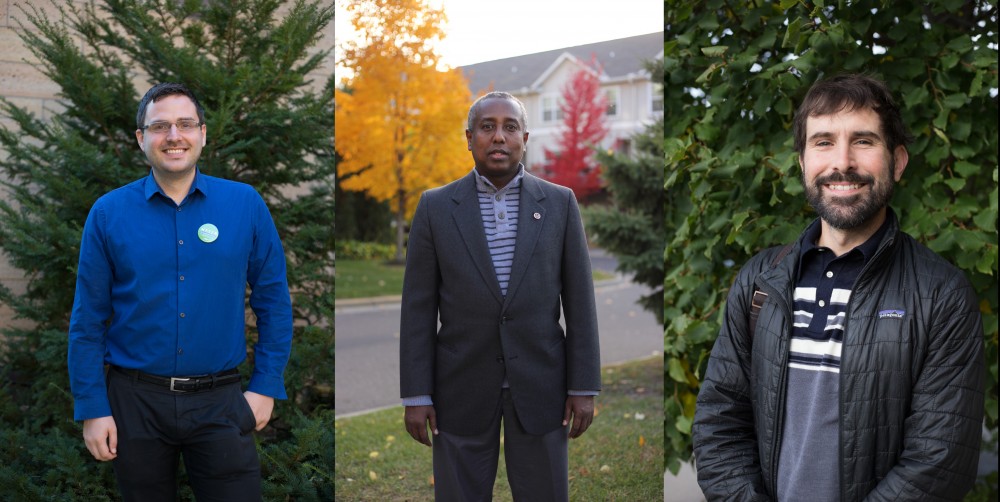All three candidates vying for a seat on the Minneapolis Park Board want to make the parks system more accessible to students.
The race for the District 1 park board commissioner position, which covers several University of Minnesota neighborhoods, will be decided on Nov. 7.
Each candidate in the race has plans to better connect the city’s nationally-recognized park system to the University community.
If elected, the candidates, Green-Party endorsed Billy Menz, Independent Mohamed Barre and DFL-endorsed Chris Meyer, would influence park upkeep, recreational activities and neighborhood involvement.
Cody Olson, executive director of the Southeast Como Improvement Association, said the park board advocates for the neighborhoods and acts as a voice for residents at the city level.
Parks are “seen as a major part of the neighborhood,” Olson said. Park board decisions impact many who enjoy the parks and park board activities.
Meyer said he wants to add a “fair share” of parks to the north and east side of Minneapolis — including University neighborhoods.
By increasing the number of parks, Meyer said he wants to enable people to be outside more.
“Parks are great places for students to go and study or play sports,” Meyer said. “Everyone should care about the parks.”
Menz echoed the importance of drawing students to parks. Menz said he would pair University students with children’s activities, placing an emphasis on students working with athletic teams.
Volunteering for or coaching a team will allow University students to serve as mentors, Menz said.
“That’s going to improve our park systems because we’re going to have consistency and expertise,” Menz said.
Barre said he recognizes the importance of attracting students to the parks because he has experience with University students coaching his children’s soccer team.
Barre said University partnerships could be better utilized. Through park board outreach, he said he wants to ensure students enjoy the peacefulness of parks. Additionally, he hopes to help students build their resumes by taking on coaching and mentorship positions.
He said children could also be impacted through student volunteers, who would act as mentors for teams, Barre said.
“The University of Minnesota should be really something that … surrounding districts should be … seeking, and I will be very much interested in seeking their involvement,” Barre said.
Meyer is seeking student involvement through campaigning in University neighborhoods and encouraging students to vote.
“Candidates can do a good public service by getting students registered,” Meyer said.
He said he’s worked elections in the Dinkytown area since 2008, and sees students struggling to vote every time. Many students aren’t registered to vote, and often don’t have the proper paperwork to register on Election Day.
Meyer said he will address the “feedback loop” caused by the lack of student voters. Politicians don’t listen to student input because students don’t vote, and then students don’t vote because politicians don’t listen to them — continuing the cycle.
Menz said the park system is a “resource to create stronger communities.”
As a teacher at Lyndale Community School, Menz said he understands the “nuances” of connecting multiple government agencies to keep parks accessible for many people.
“We need people who understand how policies and actions change the city,” Menz said. “It’s going to take park commissioners who are willing to step up for the communities of this city.”
Barre said he wants to expand students’ education by having them volunteer in Minneapolis communities.
Volunteering gives students the opportunity to connect with underprivileged families and understand how they can make a difference, Barre said.
“Whatever degree you are working on, whatever discipline you are in, you can find a place to really advance your education,” he said.








